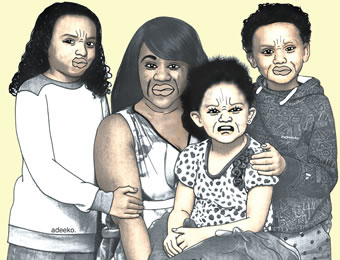Population control is at the centre stage of all efforts directed towards improvement in the quality of life. This is why human capital development is germane to national development, because it is a source of economic growth. Human capital itself is based upon “education and health”. A new concept of human development focuses on expanding people’s opportunities and choices, and measuring a country’s development progress through the richness of human life, rather than simply the wealth of his economy.
The way to acquire these opportunities and choices is through education, which plays a major role in poverty reduction and bridges social inequalities through improved living standard and good income. The dependants in a population are children, some categories of youths and the old people which must be catered for by the working class.
Children and youths need conducive socio-economic family background such as good school facilities, conducive home environment, orderliness, recognition, moral and ethical values to aid good academic performances. Higher education, and socio-economic status of families dictate higher paid job, therefore access to education is the key and bail out from poverty.
ALSO READ: Bandits have taken over 3 districts in Zamfara —Speaker
Parents of low economic status will not be able to afford sponsoring their children for higher education, thereby resulting in backwardness, and inability of such families to come out totally from conditions of extreme poverty, and unequal income distribution. Children of poor family background live in circumstances dominated by hopelessness, academically disadvantaged and inability to secure basic necessities of life.
They often experience family stress, and are exposed to all forms of violence and some risks involving hawking, sexual molestation, teenage pregnancies, ritual killing, vehicular accidents, ill health, malnutrition, developmental delay, and maladaptive behaviour. Educated families are less likely to have low income and socio-economic deprivation and are capable of giving their children qualitative education.
The essence of family and education on population is the inclusion of labour force in economic growth. Better standard of education improves the efficiency and productivity of labour force with impact on economic development.
In conclusion, the socio-economic status of a family is determined by their access to education. Formal education is the principal institutional mechanism for developing knowledge, skills, values, attitudes, and aspirations that will help individuals function effectively as agents of change in the society. Job opportunities should be available for our unemployed youths to serve as hope for the struggling parents.
To bridge the gap of inequality between the rich and the poor in the society, scholarship should be available for the indigent students. Higher education should be made available to the poor by ensuring that the privileged render assistance to the poor families.
Fashona Esther Folake Ph.D
Ibadan.






